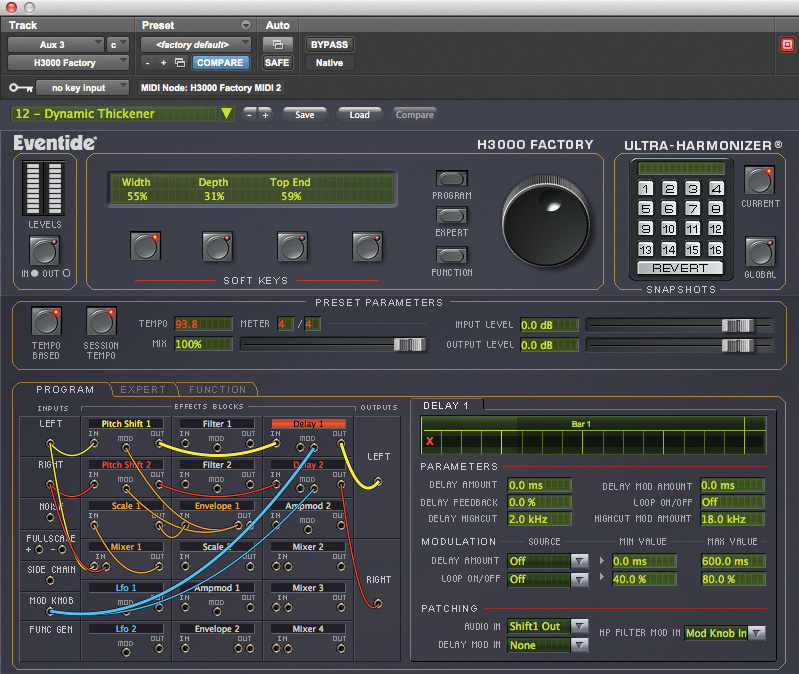
Lexicon was the first company to allow the user to directly control the coefficients of the input allpasses, and labeled this the “Diffusion” control. The earliest commercial digital reverbs, such as the EMT-250 and Lexicon 224, made use of several series allpasses at the inputs of the reverberation algorithms to increase the echo density. In the late 1970’s, James Moorer published an optimized version of the allpass delay, which used less multiplies, and is more commonly used today: The resulting delay unit is referred to as an allpass delay: Schroeder developed a very clever feedback/feedforward trick, such that the resulting delay line has a “flat” frequency response.


Manfred Schroeder, in his seminal 1962 AES paper “Natural Sounding Artificial Reverberation,” discusses using very short feedback delay lines in series to increase the echo density. The answer lies in the signal processing tricks used to generate the initial high echo density. It would seem that a given echo density should be a characteristic of the space, not of the signal being sent into that space. But why is this? A real room or hall tends to start with very high levels of diffusion, due to the objects typically found in the space – chairs, furniture, intricate wall patterns, etc.
#Eventide h910 famous examples manuals#
If you read a lot of manuals for reverb products, you will often see similar descriptions of the Diffusion control, as well as the recommendation to use lower settings of Diffusion for clearer vocals. For clearer and more natural vocals, mixes and piano music, use low or moderate Diffusion settings. To enhance percussion, use high settings of Diffusion. Echo density is affected by Size - smaller spaces will sound denser. High settings of Diffusion result in high initial buildup of echo density low settings cause low initial buildup.
#Eventide h910 famous examples manual#
The manual for the Lexicon LXP-15 has a somewhat typical description of the Diffusion parameter:ĭiffusion: Controls the degree to which initial echo density increases over time.

This is usually described as increasing the echo density, either the initial echo density (for Lexicon algorithms) or the rate at which echo density builds over time. One of the most common controls found in reverberation algorithms is the Diffusion control.


 0 kommentar(er)
0 kommentar(er)
